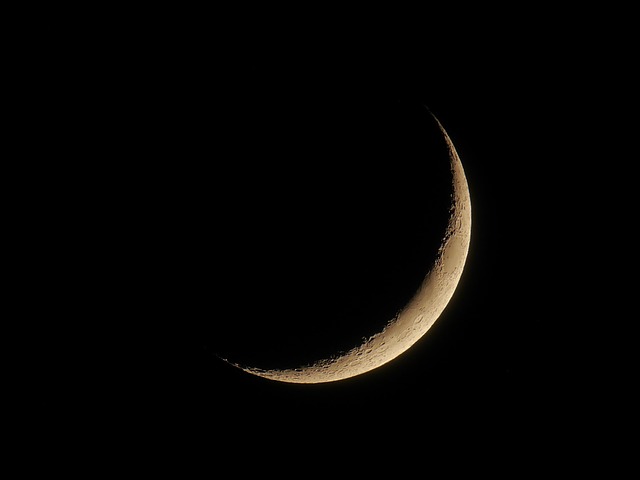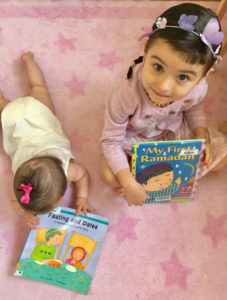What has always fascinated me about the world besides languages and the different ways in which people communicate, is the way in which this social system happens. The cultural traditions that give each place a peculiar vibration, their essence. Being expats, nomads, we are excited to embrace the traditions in each place we visit or live in. By opening our hearts and minds with compassion, and without judgement, we are able to appreciate what is important to others, and most importantly, why the meaningful relationship of events build the puzzle of a given culture.
In Vietnam we enjoyed Tet, the Vietnamese New Year, and most important celebration in this country. Now here in the Middle East we are about to experience our first true Ramadan celebration. Gaia has been learning the story of why Ramadan is important and what the tradition consists of. Today I took her to the children’s library and coincidentally she picked these two books.
I have been reading about Ramadan to understand, respect, and be part of this celebration. I also learned more in detail as I read Gaia some other books in the library. For this Muslim tradition I have learned that it is the ninth and most special month as it is a time of reflection, to purify the body, a time of compassion, and a time to share with families.
Since the islam calendar measures the months by moon cycles, the date of Ramadan changes gradually over time. It always starts with the crescent of a new moon, the hilal. This year, 2017, the start of Ramadan is July 27. The day starts before sun rises with a meal called Suhoor [pre-dawn meal], then the fast starts for the day. All adult Muslims are expected to fast. There are exceptions for those who are sick, or pregnant women. Children practice with short fasts until they are ready for the full day. School and work days continue with a shorter period, to allow prayer.
important DEEDS
- FASTING: Begins at dawn and lasts till dusk. This action builds self-control, but especially understanding for the ones who are less fortunate, creating more awareness for compassion.
- CHARITY: Islam also requires to donate a share of wealth to communities in need. In Gaia’s school the students donated toys to the children in Syria.
- PRAYER: This usually happens 5 time a days, however, it increases during Ramadan by visiting the Mosque and reading aloud from the Qur’an [Islam’s Holy book]
Being a period of dedication and selflessness, it is also a time to share with family. As the sun sets, families and friends get together to enjoy iftar, the fast-breaking meal. This feast usually consists of dates, soups, breads, and pastries stuffed with sweet cheese or nuts, and kunafa, an angel-hair type of pasta. Under the Ramadan moon Muslims share holiday foods, games, and traditions.
Ramadan ends just as it begins, like a cycle. It ends with a new moon. A three-day holiday follows- Eid al-Fitr, the Feast of the Fast Breaking. The celebration that takes place on the first day of the month after Ramadan, and marks the end of the month of fasting. Gathering of big groups come together for the first Eid prayer.
We have observed the phrase “Ramadan Kareem”. We were wondering if Kareem meant “happy”. After a bit of research, I learned that Kareem is a direct Quranic name for boys that means “generous”, “honorable”, “kindhearted”, “noble”, “excellent”. The word Kareem is used about 27 times in the Quran, thus in this traditional phrase, it means “Generous Ramadan”.
Understanding the important significance of the crescent moon has allowed me to grasp why this is such a potent symbol in Islam, as I always wondered why it was used in the Mosques and in flags. It is very fascinating how symbols become a meaningful part of our existence.

Gaia has learned at school what Ramadan means. Although we are not Muslims, it is amazing to know that at four-years old, our daughter is aware of the important tradition of this religion. She is able to tell me that we cannot eat, and we need to fast because some kids do not have anything to eat, and that we must give to those who don’t have much. We are joyful to take part of this celebration as it represents intense spirituality, community-focus, and togetherness, which in any culture or religion, are important concepts that bring humanity into its most important essence: LOVE.



A thank you for these very easy explanation.